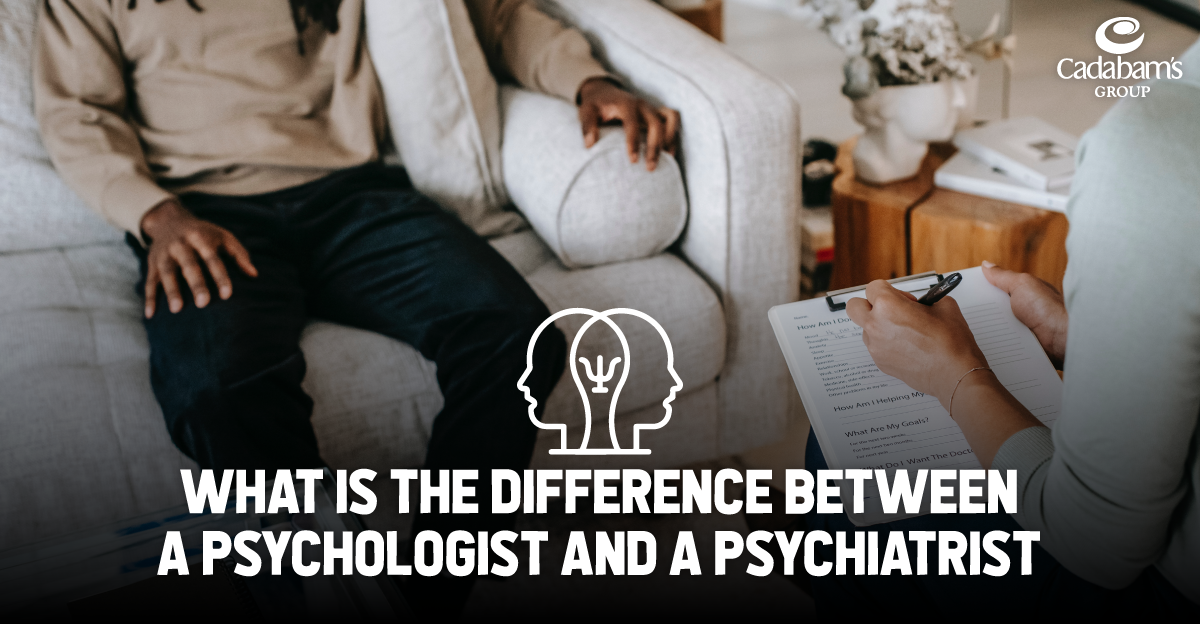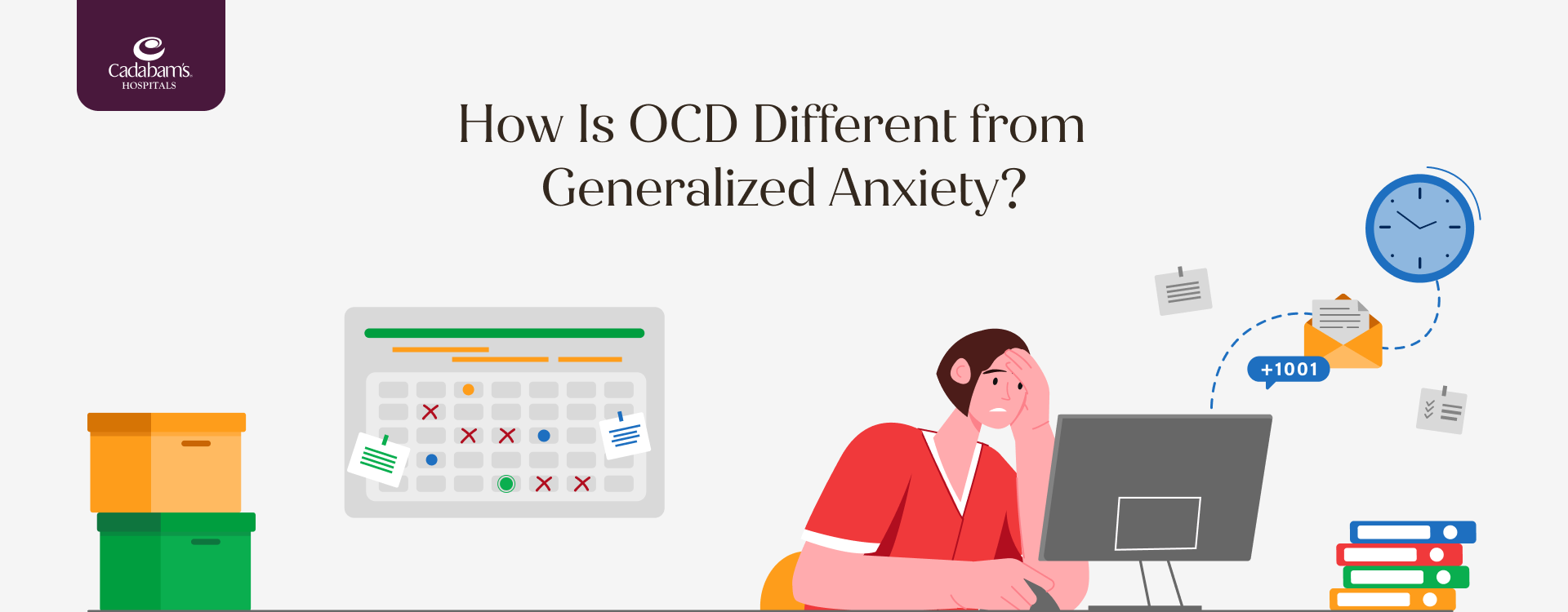Table of Content
When it comes to seeking help for a mental illness or any kind of mental problem, two names come to mind: Psychologists and Psychiatrists. But who do we approach? Psychologists and psychiatrists are both trained in the same practice of mental health care, yet the treatments they offer vary on the type of mental condition. If you are seeking someone to counsel for mental illnesses, whom do you approach?
Read on to understand what is the difference between a psychologist and a psychiatrist.
Psychologist and Psychiatrist - Educational Background
While both psychologists and psychiatrists essentially study the same subject of mental health, their approaches to the subject are very different.
Who is a Psychiatrist?
A psychiatrist studies to get a medical degree in the field of mental health either to attain an MD (doctor of medicine) or DO (doctor of osteopathic medicine). After they graduate with either of the degrees, they write an exam to gain a license to practice their field in a chosen state.
They are then required to continue the practice for a minimum of four years in a hospital under supervision from senior doctors. Psychiatrists must also renew their practice certifications every 10 years.
Who is a Psychologist?
A psychologist studies a graduate program in medicine for a period of four or six years to attain a PhD (doctor of philosophy) or PsyD (doctor of psychology) degree. They will also be required to complete an exam to gain a license in a chosen state to practice professionally.
Approach to Treatments for Psychiatrists and Psychologists
Being certified medical professionals, psychiatrists are authorized to diagnose and treat documented cases of mental illness. You would usually find a psychiatrist employed at a major hospital, a rehabilitation center, a medical university, or a nursing home or practicing in a private institution.
Psychologists are not authorized to prescribe medications. Instead, they recommend talk therapies and exercises that are best suited for mild mental conditions, and this is all done through careful observation and counseling with their patients. They are also found in similar places as psychiatrists but prefer setting up a private practice.
Should I consult a psychiatrist or psychologist?
Before you approach a psychiatrist or a psychologist, you must first consider the kind of mental health issues you are facing. If someone you care about is undergoing lots of stress and shows signs of anxiety and depression, it is best to consult a psychologist. Psychologists will take them through mental therapy sessions to ease their troubled minds.
Psychiatrists are best consulted when a person is undergoing severe cases of mental illness. This is evident through extreme fluctuations in mood behavior and an unusual pattern of disruptions in daily living due to mental health issues. The psychiatrist will be able to diagnose the issue and provide the best medications to help control their mental state.
There are many cases where consulting both a psychologist and a psychiatrist can prove beneficial. The two normally work in tandem when it comes to diagnosing and treating a mental illness.
On the financial front, make sure you have medical insurance to cover the medications and, if needed, medical therapies that a psychiatrist would recommend. Psychologists normally split their fees on a monthly or per-visit basis.
Important Questions to Ask
When deciding whom to consult, it’s best to be well-prepared before your first visit. One good way to get comfortable with a psychiatrist and a psychologist is to have a list of questions you should ask to break the ice and familiarize yourself with them.
Some questions to ask your psychiatrist:
- What are the treatment options available?
- How long is the medication process?
- Are there any side effects of the treatment?
- Will I develop a dependency on the medication?
- What happens if I skip treatment?
Some questions to ask your psychologist:
- How long have you been in practice?
- Describe your ideal patient.
- How long will the sessions be?
- Do you work independently?
- How much do you charge?
Psychologists and Psychiatrists: The Differences and Similarities
| Psychiatrists | Psychologists | |
| Educational Background | Psychiatrists are medical doctors by training. They require a Doctor of Medicine (MD) Degree. | Psychologists are trained mental health professionals. They complete undergraduate and postgraduate degrees in psychology. Post this, they also complete a Psy. D or Ph. D to qualify as a clinical psychologist. |
| Can they prescribe medications? | Psychiatrists can prescribe medication to treat mental health disorders. | Psychologists cannot prescribe medication. They treat mental health disorders through therapy and related approaches. |
| Key Focus Area | Psychiatrists’ core focus is on treating mental health disorders. | Psychologists can not only treat mental health disorders, but they can also help with other mental health issues like stress, relationship problems, and more. |
| What do they help with? | Psychiatrists usually deal with moderate to severe cases of mental illnesses. | Psychologists deal with mental illnesses while also working with individuals who have behavioral and developmental issues. |
Psychologists and Psychiatrists: How They Work Together
Psychologists and psychiatrists, though distinct in their training, form a powerful team for mental health. While psychologists offer therapy and assessments, psychiatrists, as medical doctors, can prescribe medication. They collaborate to provide a holistic approach, addressing both the mind and body for optimal patient well-being.
Conclusion
Both psychologists and psychiatrists are equally capable in their field of working with mental illness. No one is better than the other; they are experts in their own areas of specialization, and effective results are seen when both of them work together to improve an individual’s mental well-being.
At Cadabam’s, we believe in a multi-approach for the best outcome. Meet the best of the psychiatrists and the psychologists who work hand in hand to give you the best treatment.
FAQs
1. Is it better to see a psychiatrist or psychologist?
Ans. A question that everyone faces when they seek help for mental health is psychiatrist vs psychologist. Whom to choose? Well, the answer depends. If you feel you need medication for your condition, you can approach a psychiatrist. However, if you feel you do not want to take the medication route, you can consult a psychologist. Further, if you feel undecided, a psychologist would be a good starting point.
2. How is a psychologist different from a psychiatrist?
Ans. What is the difference between a psychologist and a psychiatrist? A question we have been asked innumerable times. Psychiatrists and Psychologists come from different educational backgrounds. They differ in their expertise as well. Psychiatrists are certified medical professionals with a background in studying medicine. Psychologists approach mental health from a different perspective and have to attain a PhD ( Doctor of Philosophy) degree. Psychiatrists can prescribe medication, while psychologists cannot.
3. Is a psychologist a Doctor?
Ans. A psychologist is a trained mental health professional who has completed a PhD. This is where the difference between a psychiatrist and a psychologist lies. A psychiatrist can prescribe medication, while a psychologist focuses on the therapeutic approach to recovery. A psychologist uses approaches like REBT, CBT, counseling, and many others to ensure you complete full recovery.
4. Are therapists psychologists or psychiatrists?
Ans. A therapist is completely different from a psychologist or a psychiatrist. A psychiatrist is a medical professional who uses medication and related approaches to treat mental health disorders. A psychologist has a Ph. D. in psychology or a Psy. D degree and works with individuals with mental health disorders. A therapist usually has a master’s degree in psychology and helps people in medical settings and schools, workplaces, and other areas.
5. Can psychologists diagnose mental illness?
Ans. Yes, psychologists are trained mental health professionals capable of diagnosing and treating mental health disorders. They will use a detailed evaluation of a person’s health history and their family’s history to diagnose accurately. They may also use various psychological assessments and tools to aid in the process.
6. Can psychologists prescribe medication?
Ans. Psychologists cannot prescribe medication. Only psychiatrists can prescribe them to treat mental health disorders. Psychologists use therapeutic approaches like CBT, REBT, Family Therapy, and Group Therapy to help recover.
7. Is a psychologist an MBBS?
Ans. A psychologist does not hold a medical degree. They usually hold undergraduate and postgraduate degrees in psychology. They also hold a Ph.D. or Psy.D in psychology.
8. What exactly do psychologists do?
Ans. Psychologists are trained mental health professionals. They help with multiple mental health, behavioral, and developmental issues. They use therapy and related approaches to help individuals lead a healthier life.
9. Do psychiatrists treat Anxiety?
Ans. Yes, psychiatrists can treat anxiety. If you are diagnosed with any of the anxiety disorders, a psychiatrist may prescribe anti-anxiety medication to help you cope with the symptoms of the disorder.
10. Is a psychiatrist a real doctor?
Yes, a psychiatrist is a real doctor. They complete medical school and residency, just like other doctors, but specialize in mental health. This means they can diagnose and treat mental health conditions, including prescribing medication.
11. What is the difference between psychology and psychiatry?
Psychology and psychiatry both address mental health but differ in approach. Psychology explores behavior and emotions through therapy and counseling, while psychiatry involves medical interventions, such as medications. Psychologists hold advanced degrees in psychology, while psychiatrists are medical doctors specializing in mental health, capable of prescribing medications.
12. What is the difference between a psychologist and a psychiatrist?
Psychologists and psychiatrists have distinct training and approaches to mental health. Psychologists with advanced degrees in psychology utilize therapy for emotional and behavioral concerns. Psychiatrists, as medical doctors specializing in mental health, can prescribe medications and integrate medical interventions into their treatment strategies for a comprehensive approach to mental well-being.
13. Who is a psychiatrist?
A psychiatrist is a physician with expertise in mental health. They assess, diagnose, and treat various mental disorders. Psychiatrists employ a holistic approach, using therapy and medications to address emotional and psychological issues. Their extensive medical training allows them to consider physical and mental aspects when formulating treatment plans.
How Cadabam's Help you for Addiction?
- 410+ Professional Consultants
- 1,00,00+ Happy Faces
- 120+ Currently Seeking Treatments










